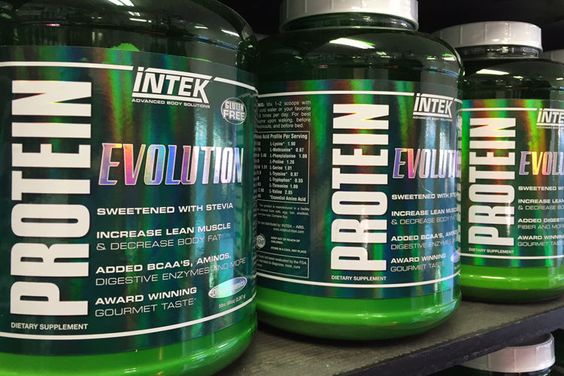
Protein is a vital macronutrient that plays a crucial role in building and repairing tissues, producing enzymes and hormones, and supporting overall health. Whether you’re an athlete aiming to enhance performance, a busy professional seeking balanced nutrition, or someone looking to maintain a healthy lifestyle, understanding protein and its sources is essential. This comprehensive guide will delve into the benefits of protein, various dietary sources, and tips for finding the best stores that sell protein powder.
The Importance of Protein
What is Protein?
Protein is composed of amino acids, which are the building blocks of the body. There are 20 different amino acids, nine of which are essential, meaning they must be obtained through the diet since the body cannot produce them. Proteins are involved in nearly every bodily function, including:
- Muscle Growth and Repair: Protein is crucial for repairing and building muscle tissues, especially after exercise.
- Enzyme Production: Enzymes, which catalyze biochemical reactions in the body, are made up of proteins.
- Hormone Regulation: Some hormones, such as insulin and growth hormone, are proteins.
- Immune Function: Antibodies, which help fight infections, are proteins.
- Transport and Storage: Proteins transport molecules like oxygen (hemoglobin) and store nutrients.
Health Benefits of Protein
- Muscle Maintenance and Growth: Adequate protein intake is essential for preserving lean muscle mass, especially during weight loss or aging.
- Weight Management: Protein helps increase satiety, reducing overall calorie intake and aiding in weight management.
- Bone Health: Protein supports bone density and strength, reducing the risk of osteoporosis.
- Metabolism Boost: High-protein diets can enhance metabolic rate and promote fat loss.
- Recovery and Repair: Protein is vital for the recovery and repair of tissues after injury or intense physical activity.
Dietary Sources of Protein
Animal-Based Protein Sources
Animal proteins are considered complete proteins as they contain all nine essential amino acids. Common animal-based protein sources include:
- Meat: Beef, pork, lamb, and poultry.
- Fish and Seafood: Salmon, tuna, shrimp, and other seafood.
- Dairy Products: Milk, cheese, yogurt, and cottage cheese.
- Eggs: A versatile and nutrient-dense protein source.
Plant-Based Protein Sources
Plant proteins can be complete or incomplete, but a varied diet can provide all essential amino acids. Popular plant-based protein sources include:
- Legumes: Beans, lentils, chickpeas, and peas.
- Nuts and Seeds: Almonds, walnuts, chia seeds, and flaxseeds.
- Whole Grains: Quinoa, brown rice, barley, and oats.
- Vegetables: Broccoli, spinach, and Brussels sprouts.
- Soy Products: Tofu, tempeh, and edamame.
Protein Supplements
Protein supplements provide a convenient way to increase protein intake, especially for those with busy lifestyles or increased protein needs. Common types include:
- Whey Protein: A fast-digesting dairy protein popular among athletes.
- Casein Protein: A slow-digesting dairy protein ideal for nighttime use.
- Plant-Based Proteins: Options like pea, rice, and hemp protein for vegetarians and vegans.
- Egg White Protein: A high-quality, complete protein from eggs.
Choosing the Right Protein Powder
Factors to Consider
When selecting a protein powder, consider the following factors to ensure you choose the best product for your needs:
- Protein Content: Check the protein content per serving to ensure it meets your dietary requirements.
- Amino Acid Profile: Opt for complete proteins that provide all essential amino acids.
- Ingredients: Look for products with minimal additives, artificial sweeteners, and fillers.
- Digestibility: Consider protein powders with added digestive enzymes if you have a sensitive stomach.
- Allergies and Intolerances: Choose hypoallergenic protein powders if you have specific dietary restrictions.
Types of Protein Powder
- Whey Protein Isolate: Contains a higher percentage of pure protein and is lower in fat and lactose compared to whey concentrate.
- Whey Protein Concentrate: More affordable but contains slightly more fat and lactose.
- Hydrolyzed Whey: Pre-digested for faster absorption, ideal for post-workout recovery.
- Plant-Based Protein Blends: Often combine different plant proteins to provide a complete amino acid profile.
Finding the Best Stores That Sell Protein Powder
Online Stores
Shopping for protein powder online offers a vast selection and the convenience of home delivery. Some of the best online stores that sell protein powder include:
- Amazon: A wide variety of brands and products, often with customer reviews and competitive pricing.
- Bodybuilding.com: Specializes in supplements for athletes, with detailed product descriptions and user reviews.
- iHerb: Offers a range of natural and organic protein powders, with frequent discounts and global shipping.
- Vitamin Shoppe: Provides an extensive selection of supplements, including protein powders, with a focus on quality and customer service.
Physical Retail Stores
For those who prefer to see products in person before purchasing, physical retail stores are an excellent option:
- GNC (General Nutrition Centers): A well-known chain with a comprehensive range of protein supplements and knowledgeable staff.
- Vitamin Shoppe: In addition to its online presence, Vitamin Shoppe has numerous physical locations for in-store shopping.
- Whole Foods Market: Offers high-quality, natural, and organic protein powders, including many plant-based options.
- Local Health Food Stores: Often stock a curated selection of premium protein powders and provide personalized service.
Tips for Choosing the Right Store
- Product Selection: Ensure the store offers a variety of protein powders to suit different dietary needs and preferences.
- Quality Assurance: Choose stores that prioritize quality, offering products from reputable brands with transparent labeling and third-party testing.
- Customer Reviews: Look for stores with positive customer reviews and testimonials regarding product quality and customer service.
- Return Policy: Check the store’s return policy to ensure you can return or exchange products if needed.
Incorporating Protein into Your Diet
Daily Protein Requirements
The recommended daily intake of protein varies based on factors such as age, sex, activity level, and overall health. General guidelines suggest:
- Sedentary Adults: 0.8 grams of protein per kilogram of body weight.
- Active Adults: 1.2 to 2.0 grams of protein per kilogram of body weight, depending on the intensity of physical activity.
- Older Adults: Slightly higher intake may be beneficial to preserve muscle mass and strength.
Practical Tips for Increasing Protein Intake
- Balanced Meals: Include a source of protein in every meal, such as eggs for breakfast, chicken or tofu for lunch, and fish or beans for dinner.
- Healthy Snacks: Choose protein-rich snacks like Greek yogurt, cottage cheese, nuts, or protein bars.
- Protein Shakes: Incorporate protein shakes into your routine, especially post-workout or as a convenient meal replacement.
- Cook in Bulk: Prepare protein-rich meals in advance to ensure you have healthy options readily available throughout the week.
Discover Your Go-To Fitness Supplements Store: Survival Supplement
For those in search of a reliable fitness supplements store, look no further than Survival Supplement. As a leading supplement store, Survival Supplement offers a comprehensive range of high-quality products designed to support your fitness and health goals. Whether you’re in need of protein powders, pre-workout formulas, or recovery aids, Survival Supplement has you covered. With a commitment to excellence and customer satisfaction, this store ensures that you get the best supplements to enhance your performance and overall well-being. Visit Survival Supplement today and elevate your fitness journey with top-tier products you can trust.
Conclusion
Protein is an essential nutrient that plays a critical role in overall health and wellness. Whether you’re looking to build muscle, manage your weight, or simply ensure you’re meeting your nutritional needs, understanding the benefits and sources of protein is key. With a wide variety of dietary sources and supplements available, it’s easier than ever to incorporate adequate protein into your diet.
When shopping for protein supplements, finding the best stores that sell protein powder is crucial. Whether you prefer the convenience of online shopping or the personalized service of physical retail stores, numerous reputable options are available to meet your needs. By considering factors such as product quality, customer reviews, and selection, you can confidently choose the right protein supplements to support your health and fitness goals.








